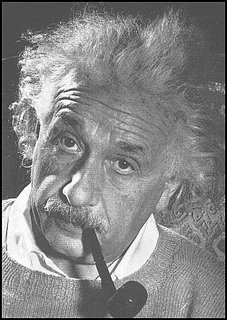A Prayer for Owen Meany - by John Irving - my review

I've always had a tentative relationship with my religion. Like many, I take comfort in established, ritualized practices. On the other hand, I have a tough time with some of what I consider to be loopy mandates outlined by the Catholic Catechism.
One aspect about A Prayer for Owen Meany definitely touched on Faith; how I reconcile the difference between knowing that G_d exists; and believing that his word is what has been faithfully communicated through the Bible.
Couple that with my mistrust for 'the government' and my love for the Constitution and I have the perfect setting for an exploration of what happens when the two mix.
Owen Meany is a Christ-like figure - the reluctant messiah who, for whatever reason - is tapped to make the supreme sacrifice; he is to die. It causes me to ponder how Jesus must have felt as he knew what was going to happen and how he dealt with that impending eventuality of his demise for a 'greater good.'
And what of altruism? How can one reconcile voluntary termination of one's very life when to do so involves an act so selfless that it means termination of life as we know it to exist in this dimension. It begs the question, is altruism really voluntary at all and moreover, does it make any sense?

What about those left behind? John Wheelright's retrospective recounts the life of his enigmatic friend and the events that precipitated his death. He is preoccupied with whether the senseless act of violence that killed Owen could have been avoided - whether the collision course was one of divine providence or merely the product of a self-directed destiny. In the process, Johnny's story reveals the struggle between faith and reality; for Johnny it was one of knowing the end result and looking back; for Owen, it was one of knowing the end result and moving toward it. While both took a lifetime to complete, I am not sure who suffered more in the end.
If this is a parallel story of Jesus of Nazareth and there are/were other people with whom he shared his earthly existence then, their spin on the chain of events that led to his death and how they perceived it opens a whole new story. I can easily surmise that their personal interpretations might vary and the depth of their grief drives them to revisit the 'greatest story ever told' for the rest of their lives.
There are also many symbolic parallels throughout the story as well. For instance, Owen Meany's initials might be related to the letter Omega - as in the Christ's declaration of being the 'alpha and the omega.' His relationship to 'John' - might this be a reference to the beloved apostle alluded to in the New Testament? How about the Mary Magdalene, perhaps an alliterative parallel to Hester - 'the Molester'; maybe an allusion to the Scarlet Letter's Hester Prynne and the attendant consequences for having dared to love a man she could never have. How about her ability to evoke emotion and enjoy adulation of her fans. Yet despite her rock-star appeal, she was powerless to save the man she loved from with his date with destiny?

So many questions arise like;
1] Is it easier to bitch about my government when I really have problems with my G_d? Civil disobedience beats the shit out of apostasy right? My government can jail me however, according to Pascal's gambit regarding the existence of G_d; violating the treatises of my faith can doom me for eternity.

2] Is this why fundamentalists work so hard at setting a status quo in their ever-changing world?
3] What do you do when your messiah - whom you never realized to be your messiah - is now your messiah and he is gone? You no longer can see him in the flesh. Is this the point of embarkation for the trip we call 'faith'?
4] How about the irony involved in being killed by someone else whose practiced religion calls for your destruction - even if you are the messiah?
 I think about mistrust of my government which also played a role in Owen's death, the zealots and the existence of evil.
I think about mistrust of my government which also played a role in Owen's death, the zealots and the existence of evil.Like John Wheelright, I am a religious outsider. The struggle with my faith, striving to make sense of the religion of my birth. I take in my countryman's sacrosanct professions of faith and come away unconvinced.
Among my fellow Christian believers, there is a sea of difference where one set of perspectives takes precedence over another. Those who currently hold sway doggedly embrace the notion of a vengeful G_d that endorses 'an eye for an eye.' By convention, these practitioners of faith invoke the notion of self reliance as their excuse for turning a blind eye to the plight of a poor. Since G_d only helps those who help themselves, poverty must be an indication that such individuals are sinners - abandoned by the creator and therefore - of no consequence. The G_d of Abraham - whose eye is on the sparrow - is unmoved at the growling stomach of starving child.
Only in America do we protect an impoverished unborn human's right to be born into a mean world where they are guaranteed denial of equal access to education, food and a decent quality of life. We abandon them to the mean streets of what so proudly we hail as the greatest country on earth only to hunt them down years later. They are perfect fodder for the alter of object lessons because we prosecute them and even execute them in far greater numbers than members of the middle and upper class. We conveniently deny along the way that offenses committed by the poor had anything to do with the crimes perpetrated by religious approbation of avarice, wholesale exclusion and pin-pointed bigotry. It does make me wonder just what a messiah might make of it all and that is another reason why Owen Meany's character moves me.
I freely admit my bias; I am a John Irving fan and this is the book that did it for me.
I know Irving thoroughly studied the work of Charles Dickens so his story-telling utilizes techniques invoking craftsmanship reminiscent of that prolific storyteller. Irving's writing skill is second to none. He delivers a thought provoking, haunting narrative that leaves me continually revisiting this story.
A Prayer for Owen Meany is a meaning-of-life book of the highest order. It doesn't give us answers. It gives us questions to ponder - something infinitely more valuable. It informs. It frustrates. It entertains. It evokes a broad range of emotions. It has the potential for commuting what seems at first blush a life so common into a glimpse of the divine. It is the story of one man's epiphany and his ongoing struggle to reconcile faith with reality. It is a book of revelation - all at once apocalyptic and painfully redemptive.
Any book that can communicate on so many different levels is a book that will stand the test of time. This is why I consider this story among the top three books penned by any living writer I have read to date.
This is only part of why I love Owen Meany and why, - like the opening line,
"I am doomed to remember a small boy with a wrecked voice..."

This is undoubtedly, my all time favorite book.
Happy Birthday Kristin. This book review is dedicated to you.
Labels: Faith, Human Nature, Love, Religion, Social Justice, Spirituality, Terrorism, Vietnam, War





